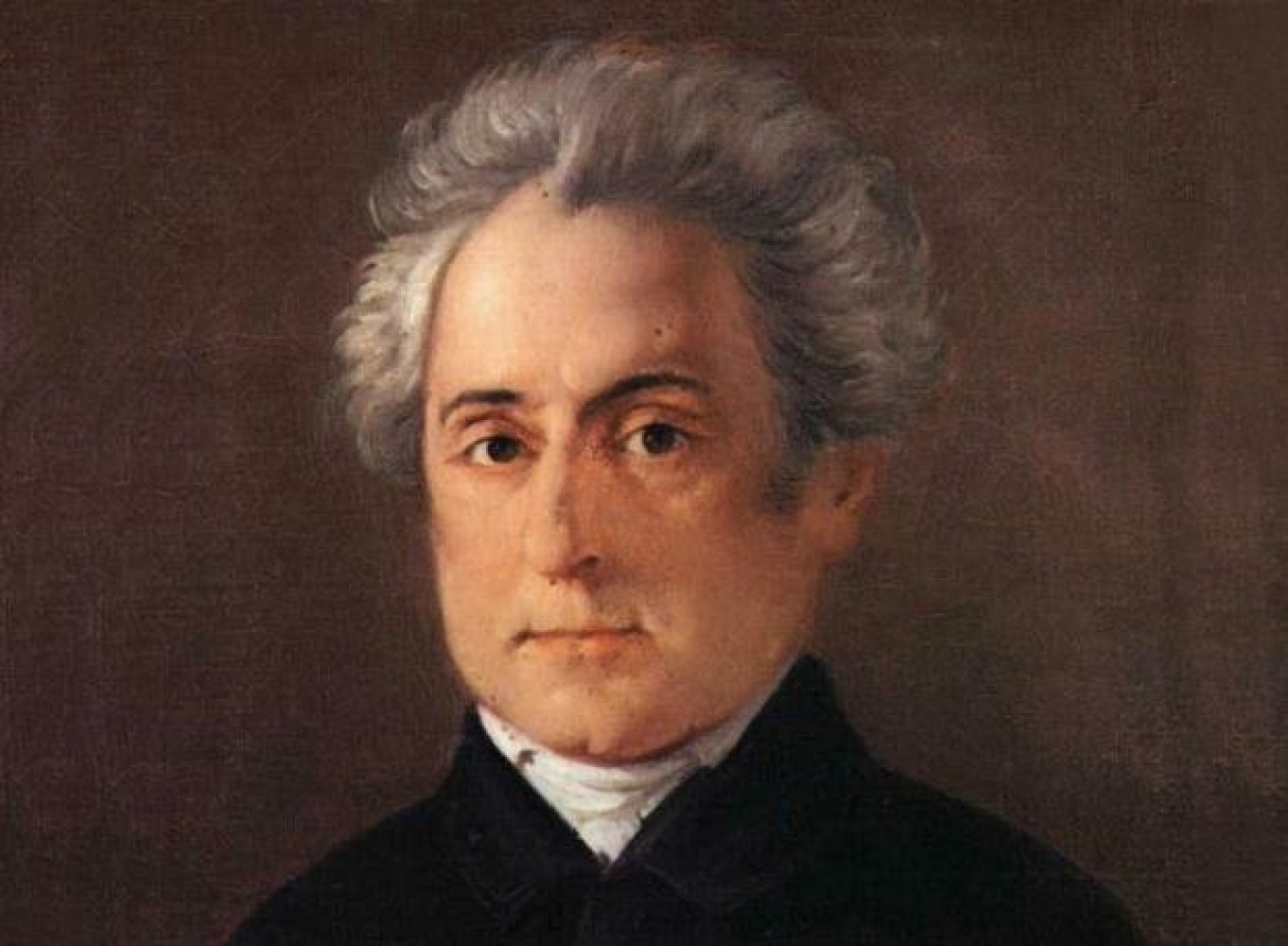
Dionysios Solomos is one of the most important Greek poets and the first modern Greek poet of European dimensions. Apart from his ten-year stay in Italy to study, he spent his entire life between Zakynthos, where he was born (1798), and Corfu, where he died (1857). He wrote Italian-language and Greek-language poetic works, but it was the latter in which he made his great poetic-expressive investment. Beginning with arcadian, neoclassical and pro-Romantic short lyric and religious poems, he crossed his poetry with the events of the Greek Revolution (1821-1828), He briefly dwelled on the typical Byronic romanticism to focus on the coupling of poetry and philosophy and to devote himself to the 'meaning of Art', attempting to express the inner conflicts and the greatness of man, either by positively projecting or by criticising. His youthful Hymn to Freedom (1823), after being translated in 1825, first into French by Stanislas Julien, English by Charles Brinsley Sheridan and Italian by Gaetano Grassetti, was instrumental in the development of philhellenic feeling in Europe. Already in his lifetime he was recognized as a national poet and from 1865 the first two stanzas of the Hymn, set to music by Nikolaos Mantzaros, became established as the national anthem of Greece.
